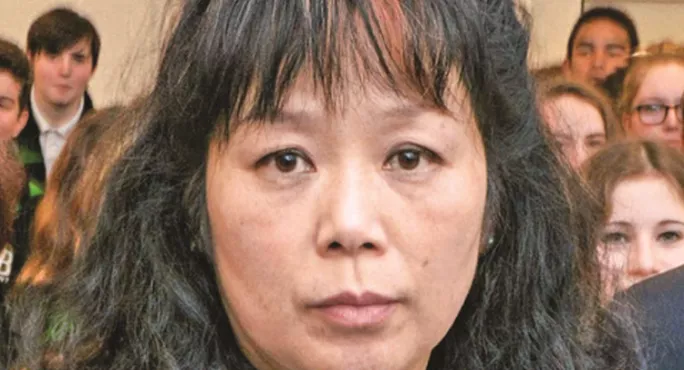‘British students should jump at the chance to learn Mandarin’, says Chinese School teacher

This is proving an exciting year for Chinese Mandarin teachers in this country. Despite education facing budget cuts, putting thousands of teaching posts at risks and threatening the quality of teaching and learning, chancellor George Osborne announced a £10 million investment towards helping schools to teach Mandarin, with the aim of getting an additional 5,000 students speaking the language by 2020.
It might be controversial to many British teachers, who teach core subjects and deliver the essential knowledge and skills, but it is certainly music to the ears of many Mandarin teachers, and to those who are about to train to teach the language in the UK.
Having obtained a BSc in biology and an MSc in biochemistry from China, I enrolled on an initial teacher training course at University of Surrey and started my PGCE in secondary science in 2001. The journey of becoming a fully qualified teacher in the UK was a difficult one. Familiarising myself with the national curriculum, adapting to student-centred teaching pedagogies and managing student behaviour proved extremely challenging.
Many times I was about to give up, and I dreamed about how my life could have been easier if I were on a Mandarin teaching training course. Students would never blame my accent for their misunderstanding, as they would expect and tolerate this if I were a foreign language teacher.
It was rare to find a PGCE Mandarin course in 2001, and I had little choice in what to teach. Keen to get on with teaching in the UK, I buried myself in school life and hardly noticed the fast-changing world around me or the impact of globalisation on the education system.
Before I knew it, the global economic system had shifted and the world had flattened. China, as a rising nation, was becoming more and more influential internationally, and skills relating to its language and culture had become a key global currency. Qualifications are now traded across borders, and the goal of turning education into a tool for economic competition dominates policy making on educational issues.
Education Secretary Nicky Morgan said:
“The relationship between UK and China is vital to our growing economy, which is why we want even more young people, from all backgrounds, to have the opportunity to learn Mandarin. Teaching pupils these important language skills will ensure they leave school not just with an excellent education but fully prepared to compete in the global race.”
In a joint press conference at the White House on 25 September 2015, US president Barack Obama and president Xi Jingping outlined the latest connections between US and China. President Obama said:
“Just as children across China learn English, we’re starting a new initiative called ‘1 Million Strong’ to encourage 1 million American students to learn Mandarin Chinese over the next five years.”
Certainly, teaching and learning Mandarin is becoming increasingly important, and this means opportunities for Chinese people, including myself. Although I do not teach the language, it still boosts my confidence in mainstream British society, and I believe it will also have a positive impact on many British Chinese young people.
It is not hard to find British-born Chinese who refuse to speak their mother tongue because of their desire to assimilate into the British cultural norm, and to integrate into mainstream society. Some have difficulties being fully accepted as “one of us”, resulting in an identity crisis and a sense of cultural confusion. Teaching Mandarin in British schools would help to promote Chinese culture, and to raise self-esteem of British Chinese.
At the White House conference, president Xi said:
“The Cold War has long ended. Today’s world has entered into an era of economic globalisation where countries are interdependent upon each other. People should move ahead with the times, and give up on the old concepts of “you lose, I win” or “zero-sum game”, and establish a new concept of peaceful development and willing cooperation.”
As a British Chinese person, I cannot wait to see more and more young people here speaking Mandarin. It is a much-needed skill for their future, and helps to build mutual respect and understanding.
Earlier this year, the UK became a member of the Chinese-backed Asian Infrastructure Investment Bank, which means that there will be more business opportunities ahead for Britain and British Mandarin speakers. In order to be better equipped for the competition of the global market, one must possess foreign language skill. The attitude of speaking English only, and expecting everybody else to do the same, is out of date and not adequate anymore.
Britain is to host state visit of president Xi later this month, and I shall be proud to see the blossoming of the UK-China relationship, and many opportunities ahead.
Chinese saying: Knowing both your opponent and yourself would make you a winner for every battle you fight (知已知彼, 百战不殆)!
British saying: Who dares wins!
Keep reading for just £1 per month
You've reached your limit of free articles this month. Subscribe for £1 per month for three months and get:
- Unlimited access to all Tes magazine content
- Exclusive subscriber-only stories
- Award-winning email newsletters
